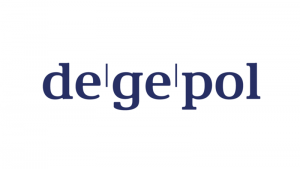OePAV’s responsibility includes education in the public affairs field. Our glossary defines public affairs terms and differentiates these.
Advocacy
Advocacy describes activities of companies, associations or individuals to influence the political decision making process. Advocacy is led by ethical considerations. The term is mainly used by NGOs.
Corporate Social Responsibility (CSR)
CSR is the social responsibilities of companies and organisations. CSR is a comprehensive business strategy. It comprises all social, ecological and economic business decisions that reach above legal compliances. CSR stands for responsible corporate actions in relation to the environment, employees and stakeholders.
Dealmaking
Deal-Making is not a part of public affairs. However, it has often incorrectly been used as synonym for lobbying. Deal-Making is the initiation and procurement of business deals. Deal closings are compensated with commission payments. Deal-Making differs from lobbying in two aspects: Firstly, in the activity itself (arranging a deal vs. conveying information). Secondly, compensation (honorable lobbyists are paid on a time and material basis and do not accept commission payments).
Digital Public Affairs
The Austrian Public Affairs Association sees digital public affairs as the strategic use of digital tools to analyze, manage and influence the social and economic environment with regard to the issues and interests of an organization. Through digital public affairs, the public and influencers in particular are more closely involved in political communication. Therefore, the ability to create and activate communities is being expanded.
Government Relations
GR means establishing and maintaining relations with politicians and members of the administration. Key element is a constant exchange of information between companies and politics / the administration. Government Relations aim to interact directly with the legislative bodies and the administration. Government Relations are built for longer terms while lobbying efforts focus on a current and single issue. GR improve relations in general without an underlying concrete concern. Their goal is a relationship of mutual trust between politics and the administration.
Grassroots Lobbying
Grassroots Lobbying is a particular way of lobbying. Grassroots Lobbyists rally individuals concerned by an issue to influence political decisions. Grassroots Lobbyists act upon their personal concerns and beliefs. Grassroots Lobbying is usually done by NGOs. However, it is increasingly used also by companies to rally their employees for the company’s objectives.
Interest Groups
The term is used in different circumstances. Firstly, it describes activities of an interest group (Lobbying). Secondly, interest groups unite individuals or legal bodies to represent their members’ interests in politics and the public. Activities of a special interest group are designed for long terms. They aim to influence political decisions in a direct way. The groups’ positions need to be defined during an internal process (internal balance of interest).
Issues Management
Issues are topics with conflicting objectives. Issues management deals with issues in a strategic and anticipatory way. It means identifying, analysing and monitoring issues relevant for a company or an organisation. The potential risk of an issue determines the way it has to be dealt with. Successful issues management identifies problems at an early stage and gives the company or organisation sufficient time to deal with it.
Lobbying
Lobbying aims to influence the political decision making process by individuals who are not part of the process themselves. Information and arguments are brought into the process of political opinion forming to accelerate, delay, advance, avoid or modify decisions. Lobbying activities encompass meetings with political decision makers as well as indirect methods like public relations work, cross-lobbying, strategic alliances etc.
Lobbyism
Lobbyism describes the system of lobbies aiming to influence political decisions.
Political Consulting
Political Consulting is a general term used for different services. For example, it means advising outsiders on the political system and supporting them in their interactions with politicians (Lobbying, Government Relations, Public Affairs). It could also mean the advice of experts for political or public institutions in specific areas like strategic communications, campaign management, organisation development or rhetoric. Political consulting also handles concrete issues via think tanks, committees or political academies. In general, it adds external knowledge to political processes and optimizes political decisions.
Political Communication
In broader terms, political communication includes information about politics, transfer of political knowledge and active participation in political processes. In narrow terms, political communication means work for a political campaign.
Public Affairs
Public Affairs are the strategic management of external relations of a company or an organisation. Public affairs arise at the interface of politics, economy and society. Public Affairs are also known as a company’s “foreign affairs”. Their goal is to manage and improve a company’s relations with its business environment in order to represent the company’s interests in politics successfully. Public Affairs maximize a company’s scope of actions and minimize negative impact of political and social developments. Public affairs are lobbying, government relations, CSR, issues management, stakeholder management and reputation management.
Public Relations
Subject to PR is the development and management of internal and external communications. PR comprises all activities promoting a company’s or organisation’s relations with the public and its image. PR’s focus is the public eye. In contrast, public affairs are based on bilateral relations with stakeholders.
Reputation Management
Reputation is the immaterial value of companies. It controls consumer behavior, stock price and credibility. Reputation is the overall rating of a company or an organisation by its stakeholders. Reputation management comprises all strategic business actions aiming at building, maintaining and improving a company’s reputation. Ultimate goal is to increase the company’s value sustainably.
Stakeholder Management
Stakeholders are individuals with an interest in a company or an organisation. Stakeholders may have any kind of claim towards the entity, even undefined ones. Stakeholders include owners, employees, consumers, suppliers, politicians, the government administration, the media and interest groups. Stakeholder Management deals with stakeholders in a strategic way taking into account their expectations and concerns.





